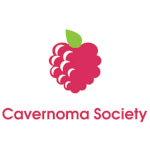Raspberry Day (Cavernoma Awareness Day) Date in the current year: September 20, 2026
 Raspberry Day, also known as Cavernoma Awareness Day, is observed annually on September 20. It was created to raise awareness of cavernomas, which are abnormal clusters of dilated blood vessels in the brain or spine that resemble raspberries.
Raspberry Day, also known as Cavernoma Awareness Day, is observed annually on September 20. It was created to raise awareness of cavernomas, which are abnormal clusters of dilated blood vessels in the brain or spine that resemble raspberries.Cavernomas, also known as cavernous hemangiomas, cavernous angiomas or venous malformations, are benign malformations made up of dilated blood vessels and are sometimes described as resembling raspberries. They are usually present at birth but often do not cause symptoms until later in life. The exact cause of cavernomas is unclear, though it is believed that genetics play a role. In some patients, cavernomas develop as a result of radiation treatment for other conditions.
Cavernomas can occur in nearly any part of the body with blood vessels. However, Raspberry Day focuses on cerebral cavernomas, which are located in the brain or spinal cord. While cerebral cavernomas are benign, they are not harmless. Depending on their size and location, they can cause various neurological symptoms, such as headaches, weakness or numbness in the limbs, fatigue, dizziness, slurred speech, double vision, balance problems, aphasia, ataxia, memory loss, difficulty concentrating, hydrocephalus, vision problems, seizures, and intracerebral hemorrhage (hemorrhagic stroke).
Cerebral cavernomas affect about one in 100,000 people per year, but their true incidence is difficult to estimate since individuals with no symptoms may remain undiagnosed unless they undergo an MRI for another reason.
The recommended treatment for cavernomas varies depending on their size, location, number, and symptoms. Small, asymptomatic cavernomas typically require constant monitoring. Some symptoms, such as seizures and headaches, can be treated with medication.
However, when there is a significant risk of hemorrhage, neurosurgery may be necessary. The decision to surgically treat a cavernoma is always based on the patient’s unique circumstances. When the location of the cavernoma makes neurosurgery too dangerous, stereotactic radiation therapy may be used; however, its efficacy is still being researched.
In 2020, the Cavernoma Society, a UK-based charity supporting people affected by brain or spinal cavernomas, launched Raspberry Day with support from the European Federation of Neurological Associations (EFNA). EFNA selected the Cavernoma Society as one of the winners of its #BrainLifeGoals project in July 2019, which resulted in the creation of Raspberry Day. The name of the awareness day was chosen because of cavernomas’ resemblance to raspberries.
Raspberry Day aims to educate the public about cavernomas, support individuals living with the condition, and promote research into potential treatments. You can participate by learning about cavernomas and sharing your knowledge with others, hosting a raspberry-themed event or fundraiser, donating to the Cavernoma Society or other organizations supporting patients or funding research, and spreading awareness on social media with the hashtag #RaspberryDay.
- Category
- International Observances
- Tags
- Raspberry Day, Cavernoma Awareness Day, international observances, awareness days, rare diseases